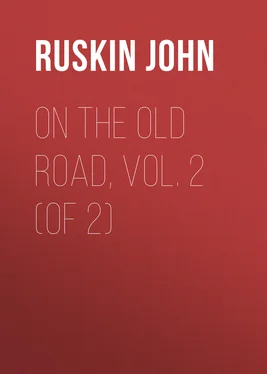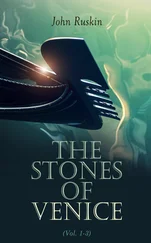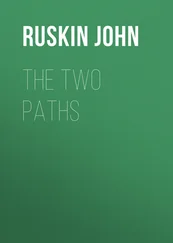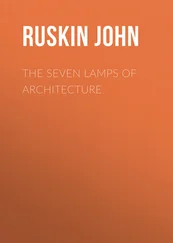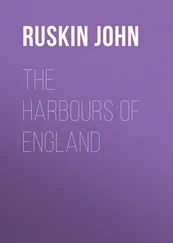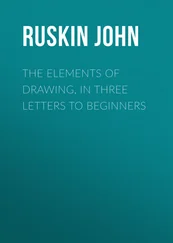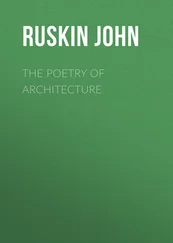John Ruskin - On the Old Road, Vol. 2 (of 2)
Здесь есть возможность читать онлайн «John Ruskin - On the Old Road, Vol. 2 (of 2)» — ознакомительный отрывок электронной книги совершенно бесплатно, а после прочтения отрывка купить полную версию. В некоторых случаях можно слушать аудио, скачать через торрент в формате fb2 и присутствует краткое содержание. Жанр: foreign_antique, foreign_home, literature_19, visual_arts, на английском языке. Описание произведения, (предисловие) а так же отзывы посетителей доступны на портале библиотеки ЛибКат.
- Название:On the Old Road, Vol. 2 (of 2)
- Автор:
- Жанр:
- Год:неизвестен
- ISBN:нет данных
- Рейтинг книги:3 / 5. Голосов: 1
-
Избранное:Добавить в избранное
- Отзывы:
-
Ваша оценка:
- 60
- 1
- 2
- 3
- 4
- 5
On the Old Road, Vol. 2 (of 2): краткое содержание, описание и аннотация
Предлагаем к чтению аннотацию, описание, краткое содержание или предисловие (зависит от того, что написал сам автор книги «On the Old Road, Vol. 2 (of 2)»). Если вы не нашли необходимую информацию о книге — напишите в комментариях, мы постараемся отыскать её.
On the Old Road, Vol. 2 (of 2) — читать онлайн ознакомительный отрывок
Ниже представлен текст книги, разбитый по страницам. Система сохранения места последней прочитанной страницы, позволяет с удобством читать онлайн бесплатно книгу «On the Old Road, Vol. 2 (of 2)», без необходимости каждый раз заново искать на чём Вы остановились. Поставьте закладку, и сможете в любой момент перейти на страницу, на которой закончили чтение.
Интервал:
Закладка:
232. After noticing the beautiful vegetation of the district, Mr. Ruskin described the view from the promontory or spur, about ten miles long, of which the last rock dies into the plain at the eastern gate of Verona. "This promontory," he said, "is one of the sides of the great gate out of Germany into Italy, through which the Goths always entered, cloven up to Innspruck by the Inn, and down to Verona by the Adige. And by this gate not only the Gothic armies came, but after the Italian nation is formed, the current of northern life enters still into its heart through the mountain artery, as constantly and strongly as the cold waves of the Adige itself." … "The rock of this promontory hardens as we trace it back to the Alps, first into a limestone having knots of splendid brown jasper in it as our chalk has flints, and in a few miles more into true marble, colored by iron into a glowing orange or pale warm red—the peach-blossom marble, of which Verona is chiefly built—and then as you advance farther into the hills into variegated marbles very rich and grotesque in their veinings."
233. After dilating on the magnificent landscape viewed from the top of this promontory, embracing the blue plain of Lombardy and its cities" Mr. Ruskin said:—
"I do not think that there is any other rock in all the world from which the places and monuments of so complex and deep a fragment of the history of its ages can be visible as from this piece of crag with its blue and prickly weeds. For you have thus beneath you at once the birthplaces of Virgil and of Livy—the homes of Dante and Petrarch, and the source of the most sweet and pathetic inspiration to your own Shakespeare—the spot where the civilization of the Gothic kingdoms was founded on the throne of Theodoric; and there whatever was strongest in the Italian race redeemed itself into life by its league against Barbarossa; the beginning of the revival of natural science and medicine in the schools of Padua; the center of Italian chivalry, in the power of the Scaligers; of Italian cruelty, in that of Ezzelin; and, lastly, the birthplace of the highest art; for among those hills, or by this very Adige bank, were born Mantegna, Titian, Correggio, and Veronese."
234. Mr. Ruskin then referred to a series of drawings and photographs taken at Verona by himself and his assistants, Mr. Burgess and Mr. Bunney, which he had divided into three series, and of which he had furnished a number of printed catalogues illustrated with notes. 13 13 This catalogue (London: Queen Street Printing-Office, 1870) is printed below, p. 109, § 242 seqq. —Ed.
I. "Lombard, extending to the end of the twelfth century, being the expression of the introduction of Christianity into barbaric minds; Christianization.
II. "The Gothic period. Dante's time, from 1200 to 1400 (Dante beginning his poem exactly in the midst of it, in 1300); the period of vital Christianity, and of the development of the laws of chivalry and forms of imagination which are founded on Christianity.
III. "The first period of the revival, in which the arts of Greece and some of its religion return and join themselves to Christianity; not taking away its sincerity or earnestness, but making it poetical instead of practical. In the following period even this poetical Christianity expired; the arts became devoted to the pursuit of pleasure, and in that they persist except where they are saved by a healthy naturalism or domesticity.
235. I. "The Lombardic period is one of savage but noble life gradually subjected to law. It is the forming of men, not out of clay but wild beasts. And art of this period in all countries, including our own Norman especially, is, in the inner heart of it, the subjection of savage or terrible, or foolish and erring life, to a dominant law. It is government and conquest of fearful dreams. There is in it as yet no germ of true hope—only the conquest of evil, and the waking from darkness and terror. The literature of it is, as in Greece, far in advance of art, and is already full of the most tender and impassioned beauty, while the art is still grotesque and dreadful; but, however wild, it is supreme above all others by its expression of governing law, and here at Verona is the very center and utmost reach of that expression.
"I know nothing in architecture at once so exquisite and so wild and so strange in the expression of self-conquest achieved almost in a dream. For observe, these barbaric races, educated in violence—chiefly in war and in hunting—cannot feel or see clearly as they are gradually civilized whether this element in which they have been brought up is evil or not. They must be good soldiers and hunters—that is their life; yet they know that killing is evil, and they do not expect to find wild beasts in heaven. They have been trained by pain, by violence, by hunger and cold. They know there is a good in these things as well as evil: they are perpetually hesitating between the one and the other thought of them. But one thing they see clearly, that killing and hunting, and every form of misery, pleasure, and of passion, must somehow at last be subdued by law, which shall bring good out of it all, and which they feel more and more constraining them every hour. Now, if with this sympathy you look at their dragon and wild beast decoration, you will find that it now tells you about these Lombards far more than they could know of themselves.... All the actions, and much more the arts, of men tell to others, not only what the worker does not know, but what he can never know of himself, which you can only recognize by being in an element more advanced and wider than his.... In deliberate symbolism, the question is always, not what a symbol meant first or meant elsewhere, but what it means now and means here. Now, this dragon symbol of the Lombard is used of course all over the world; it means good here, and evil there; sometimes means nothing; sometimes everything. You have always to ask what the man who here uses it means by it. Whatever is in his mind, that he is sure partly to express by it; nothing else than that can he express by it."
236. II. In the second period Mr. Ruskin said was to be found "the highest development of Italian character and chivalry, with an entirely believed Christian religion; you get, therefore, joy and courtesy, and hope, and a lovely peace in death. And with these you have two fearful elements of evil. You have first such confidence in the virtue of the creed that men hate and persecute all who do not accept it. And worse still, you find such confidence in the power of the creed that men not only can do anything that is wrong, and be themselves for a word of faith pardoned, but are even sure that after the wrong is done God is sure to put it all right again for them, or even make things better than they were before. Now, I need not point out to you how the spirit of persecution, as well as of vain hope founded on creed only, is mingled in every line with the lovely moral teaching of the 'Divina Conmedia,' nor need I point out to you how, between the persecution of other people's creeds and the absolution of one's own crimes, all Christian error is concluded."
In relation to this Mr. Ruskin referred to the history of the founder of the power of the Scalas, Mastino, a simple citizen, chosen first to be podesta and then captain of Verona, for his justice and sagacity, who, although wise and peaceful in his policy, employed the civil power in the persecution of heresy, burning above two hundred persons; and he also related how Can Signorio della Scala on his death-bed, after giving a pious charge to his children, ordered the murder of his brother—examples of the boundless possibility of self-deception. One of these children killed the other, and was himself driven from the throne, so ending the dynasty of the Scalas. Referring to his illustrations, Mr. Ruskin pointed out the expressions of hope, in the conquest of death, and the rewards of faith, apparent in the art of the time. The Lombard architecture expresses the triumph of law over passion, the Christian, that of hope over sorrow.
Читать дальшеИнтервал:
Закладка:
Похожие книги на «On the Old Road, Vol. 2 (of 2)»
Представляем Вашему вниманию похожие книги на «On the Old Road, Vol. 2 (of 2)» списком для выбора. Мы отобрали схожую по названию и смыслу литературу в надежде предоставить читателям больше вариантов отыскать новые, интересные, ещё непрочитанные произведения.
Обсуждение, отзывы о книге «On the Old Road, Vol. 2 (of 2)» и просто собственные мнения читателей. Оставьте ваши комментарии, напишите, что Вы думаете о произведении, его смысле или главных героях. Укажите что конкретно понравилось, а что нет, и почему Вы так считаете.
